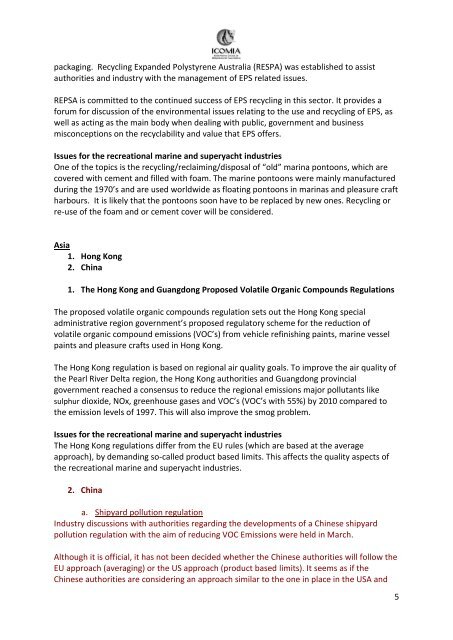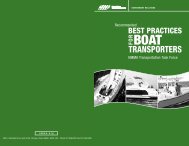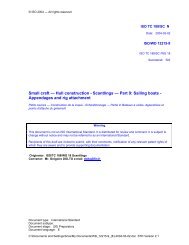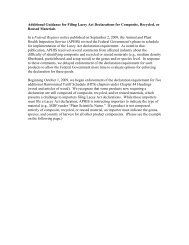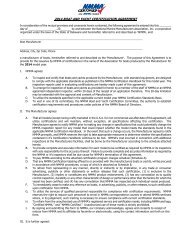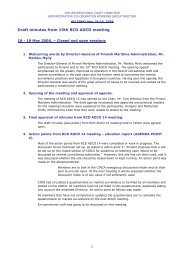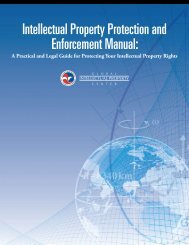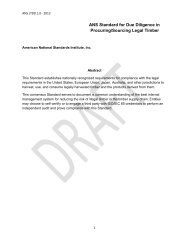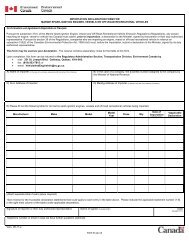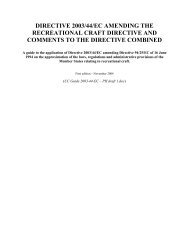global environmental legislation guide - National Marine ...
global environmental legislation guide - National Marine ...
global environmental legislation guide - National Marine ...
Create successful ePaper yourself
Turn your PDF publications into a flip-book with our unique Google optimized e-Paper software.
packaging. Recycling Expanded Polystyrene Australia (RESPA) was established to assistauthorities and industry with the management of EPS related issues.REPSA is committed to the continued success of EPS recycling in this sector. It provides aforum for discussion of the <strong>environmental</strong> issues relating to the use and recycling of EPS, aswell as acting as the main body when dealing with public, government and businessmisconceptions on the recyclability and value that EPS offers.Issues for the recreational marine and superyacht industriesOne of the topics is the recycling/reclaiming/disposal of “old” marina pontoons, which arecovered with cement and filled with foam. The marine pontoons were mainly manufacturedduring the 1970’s and are used worldwide as floating pontoons in marinas and pleasure craftharbours. It is likely that the pontoons soon have to be replaced by new ones. Recycling orre-use of the foam and or cement cover will be considered.Asia1. Hong Kong2. China1. The Hong Kong and Guangdong Proposed Volatile Organic Compounds RegulationsThe proposed volatile organic compounds regulation sets out the Hong Kong specialadministrative region government’s proposed regulatory scheme for the reduction ofvolatile organic compound emissions (VOC’s) from vehicle refinishing paints, marine vesselpaints and pleasure crafts used in Hong Kong.The Hong Kong regulation is based on regional air quality goals. To improve the air quality ofthe Pearl River Delta region, the Hong Kong authorities and Guangdong provincialgovernment reached a consensus to reduce the regional emissions major pollutants likesulphur dioxide, NOx, greenhouse gases and VOC’s (VOC’s with 55%) by 2010 compared tothe emission levels of 1997. This will also improve the smog problem.Issues for the recreational marine and superyacht industriesThe Hong Kong regulations differ from the EU rules (which are based at the averageapproach), by demanding so-called product based limits. This affects the quality aspects ofthe recreational marine and superyacht industries.2. Chinaa. Shipyard pollution regulationIndustry discussions with authorities regarding the developments of a Chinese shipyardpollution regulation with the aim of reducing VOC Emissions were held in March.Although it is official, it has not been decided whether the Chinese authorities will follow theEU approach (averaging) or the US approach (product based limits). It seems as if theChinese authorities are considering an approach similar to the one in place in the USA and5


